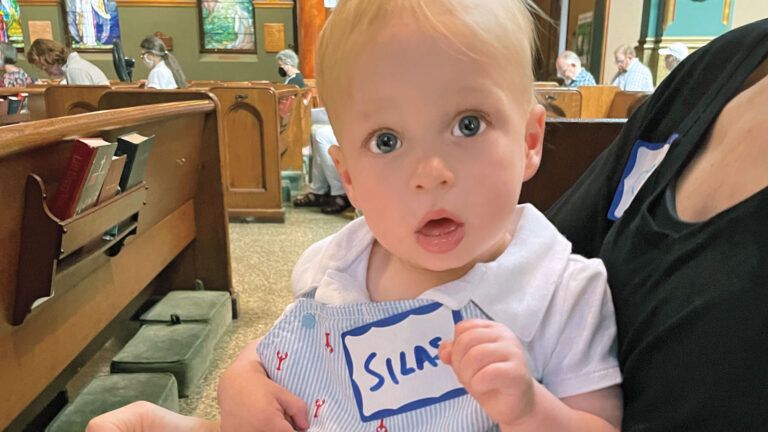Father’s day cards from Grant—zero. Birthday cards from Grant—zero. The silence is deafening.” I didn’t even have to look at the postcard from my dad to tell my therapist what it said. The words were seared in my memory. Dad was always finding fault. Keeping score.
There was no change in my therapist’s calm expression. “If you could say anything to your father, what would it be?” he asked.
“I don’t know.” Whatever I said would only be found lacking.
“The key to sobriety is honesty,” he said. “Not just about your drinking. About your relationships.”
I sighed. My recovery sponsor had been telling me the same thing lately. My therapist asked again. “If you were going to die tonight, Grant, what would you say to your dad?”
My father was a Navy fighter pilot. Pilots are notorious control freaks. Throw in a hefty dose of military discipline, and that made the man impossible to live with. Thank God he was often away on deployment when I was a kid. Otherwise in our house, it was all “Yes sir” and “No sir.”
He laid down strict rules and didn’t hesitate to enforce them. My sister coped, but I chafed at all the restrictions. A minor infraction like snacking between meals would get me sent to my room for the night. The punishment increased exponentially for more serious offenses. As a teenager, I was grounded for months on end.
Much as I hated his rules, I hated his cold, distant demeanor more. Dad had exacting standards, and he was quick to point out how we didn’t meet them. He was the hardest on Mom. He complained about her permissiveness, her spending, her housekeeping, even the kooky Lucille Ball sense of humor that made her so much fun to be around. She had to be hospitalized for her nerves a number of times, and I was sure it was all Dad’s fault. As soon as I finished high school, I left home and didn’t look back.
Mom’s funeral was the last time I saw Dad. He knew nothing about me, and that’s the way I wanted it. He’d phone from San Diego once a month with military precision, always at 5:00 p.m. (1700 hours, he’d say) on a Sunday. It was the same stilted small talk every time—the weather, sports, the news. I knew he only called me out of duty, not out of any real feeling. Certainly not out of love. That, I had always tried to convince myself, was not part of our equation.
I built a good life in Arlington, Virginia. I had a solid job, a beautiful family, a nice house. But inside I was miserable, and I didn’t know why. I turned to the bottle to mask the pain. My drinking got out of control. I wrecked five cars. I flew into fits of rage. When I saw my kids pull away from me, fear in their eyes—the way I used to react to my dad—I knew I had to get help. I joined a recovery program, faithfully went to meetings.
Each day it became easier for me to say, “My name is Grant. I’m an alcoholic.” With my sponsor’s guidance, I worked the 12 steps. I’d come a long way over the years. But lately I’d gotten stuck, on the eighth step: becoming willing to make amends to everyone I’d harmed with my drinking.
I’d made a list and divided it into three categories: “Immediately,” “When the opportunity arises” and “When hell freezes over.” Dad was the lone entry in the last category. My sponsor and my friends in recovery said that wasn’t how the program worked. I ignored them. They didn’t know my father!
What I couldn’t ignore were my feelings about Dad. I tried to pack them away and move on. I didn’t want them controlling my life the way he used to. I asked God to take away my anger and resentment, but I didn’t get an answer. To me, that silence felt like rejection. First my earthly father, then my heavenly Father too. I had tried to love them both but they didn’t love me back.
“I can’t talk honestly with my dad,” I told my therapist. “He’ll shut me down.”
“Then write him a letter,” my therapist said. He handed me a notepad and pen. “Here, give it a try.”
I took a deep breath and picked up the pen. “Just as the silence was deafening to you…” I began. I described how hurt and rejected I’d felt growing up because he never hugged me, never noticed anything good that I did, never said he loved me. Before I knew it, I’d filled a page and a half.
The next day I mailed it. There. The truth was out. No more pretending. No more stilted phone calls. And that’s what happened. Literally. Dad didn’t call that month. Or the next. Fine, I told myself. I don’t care.
Six months after I sent the letter, I finally got a call. From my sister. “Something’s wrong with Dad,” she said. “He’s sick.”
“What do you mean sick?” Dad had an iron constitution, unlike poor Mom.
“I think he’s depressed, really depressed. I’ve never seen him like this. I don’t know what’s wrong.”
But I did. I hung up, stunned. I’d pictured my dad being angry, disgusted, dismissive. I’d never imagined he would be hurt. If he’s hurt by what I wrote, he has to care about me…at least a little, I thought. It hit me that everything I’d condemned him for, I was guilty of myself.
I picked up the phone and for the first time in 15 years, I dialed my father’s number. “Dad?”
“Grant?” He sounded shocked.
“How are you?”
“Fine. How are you?”
The weather, the Redskins, the Chargers…we ran out of small talk. My heartbeat quickened. My hand holding the phone shook. Then the words I knew I had to say as much for myself as for him flew out of my mouth. “I love you, Dad.”
Silence. So intense it took both hands to keep the phone to my ear. God, please don’t let him hang up! I heard something strange. A stifledgasp. Ragged breathing. Then I realized Dad was crying.“I love you too, son,” he said. Never in my life had I heard him call me “son.” Or say “I love you.” Never, ever had I known him to cry. Not Dad. Not this man I thought I knew.
That call was a beginning. A tentative one. Three months later I flew out to San Diego to spend a week with my father. Even though we’d been talking on the phone every week, it wasn’t until we went on a three-hour drive to see my sister that we really got honest with each other. I guess we both felt safer talking to the windshield than face-to-face.
“I need to tell you something,” I said. “I’m a recovering alcoholic. I’ve been sober six years now.” Dad was silent for a minute. Was he going to criticize me for lacking self-control? I braced myself.
Then he spoke. “You know your mom was an alcoholic…”
No, I didn’t know. But the moment I heard it, I knew it was true. “All those times she was in the hospital for her nerves, she was actually drying out?”
“Yes. I’m sorry I didn’t tell you. At first I was trying to protect you. Then I assumed you’d figured out what was going on. I was afraid you blamed me.”
The more we talked, the more the pieces fell into place. Mom had seemed so fun and carefree to me as a kid. Now I recognized the kooky things she did as the risk-taking behavior of an alcoholic. Carefree, when she was under the influence, devolved into carelessness—with money, housework, even parenting. All the times she left my sister and me to fend for ourselves, saying gaily that she was just going out for a little while.
“Why didn’t you divorce her?” I asked Dad.
“Back then they didn’t give custody to fathers,” he told me. “I figured that three months of sanity a year when I was home was better than none.”
I’d pegged my father as cold-hearted and cruel when all along, he’d been trying to do right by his children. He knew we needed structure and stability, so he combated the chaos the only way he knew—with military order and discipline. He’d seen seeds of my mother’s disease in my teenage recklessness and tried to nip it in the bud. He hadn’t meant to hurt me. Everything he’d done, he’d done out of love.
We spent the rest of my visit making up for lost time. When we said goodbye, he pulled me into a long hug. In that embrace, I felt not only my father’s love but also the love of the Father who had reconciled us and who would give us 17 more years together, 17 years filled with the closeness—and the amends—that we’d both longed for.
Did you enjoy this story? Subscribe to Guideposts magazine.






